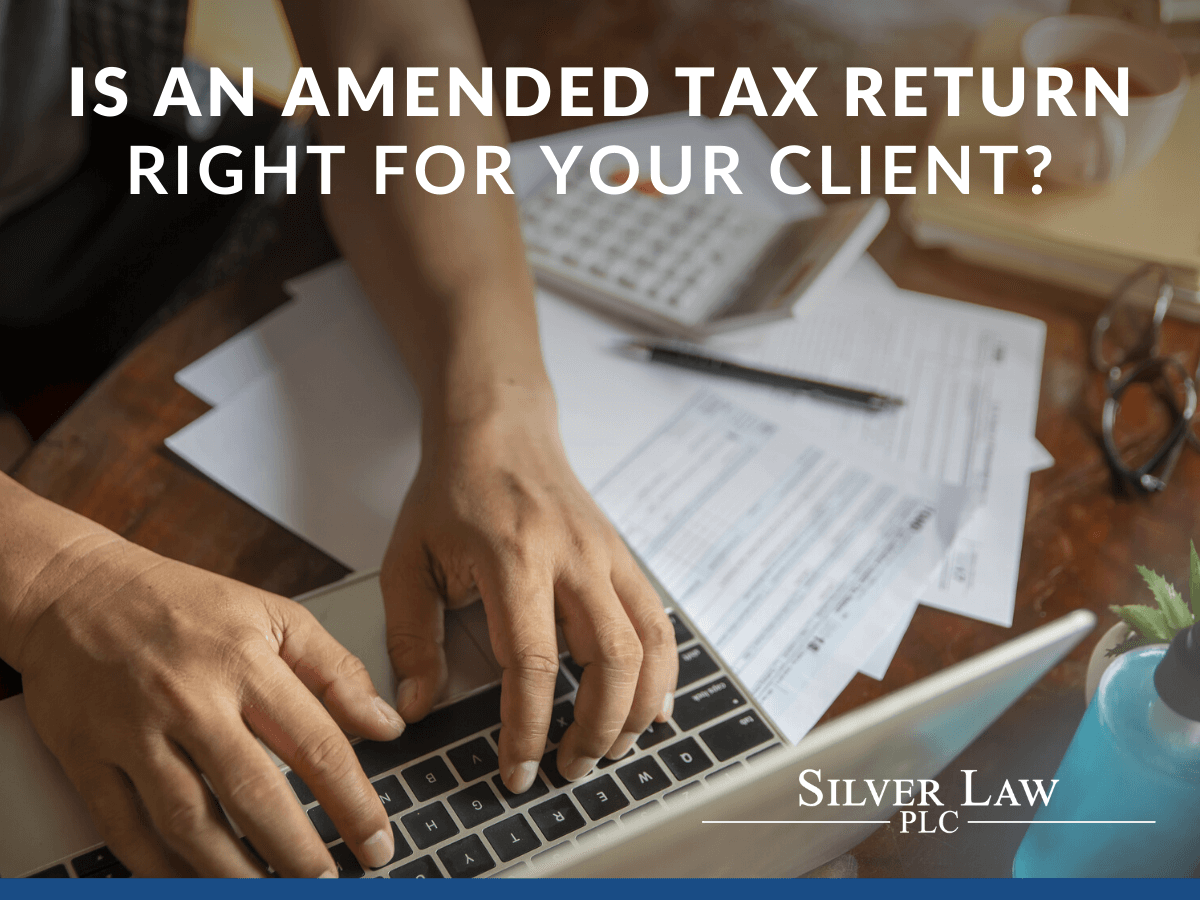It’s easy enough for taxpayers to file an amended return using the form 1040-X. Usually, people opt to amend a return because they realize they can lower what they owed on taxes or they can get a bigger refund. Either way, it means more money in their pockets. But some opt to file an amended return because they realize they actually owe more money to the IRS, and they want to make it right before they get into trouble with the IRS.
As a tax professional, you may be put in a position where you have to advise a client on whether to file an amended return or not. If you haven’t already faced this position, you’ll learn that the answer is not so clear cut.

The first thing to know is that filing an amended return is not legally required, even if the person made a mistake that causes them to owe the IRS more money. The ruling says that a taxpayer “should” file an amended return, not that they “must.”
Previous court decisions have ruled in favor of the taxpayer when the IRS tried to claim that failing to file an amended return after being advised to do so by a tax professional was an indication of fraud. The court ruled that tax law did not require the taxpayer to file the amended return even upon learning of the error. The court ruled that a fraud penalty would only be appropriate if the IRS could show that fraud was intentionally committed with the filing of the original return.
Taxpayers may not be required to file amended returns, but as a tax professional, you are required to tell them that they have made an error. That doesn’t mean that you have to advise them to file an amended return, but that is likely one of the options you’ll share with them. The law specifically states that you must “advise the client promptly of the fact of such noncompliance, error, or omission.” The law also requires you to advise the client of the potential consequences of such errors.
You should let your client know all the options to make the problem right, as well as the pros and cons of each option. That includes reviewing the consequences of any potential decision.
There are some benefits to filing an amended return, and there are some potential consequences. For example, if a taxpayer notices a mistake on a return that could be construed as fraudulent, or if the client admits to willfully admitting information, that person can file an amended return through the voluntary disclosure program. They will still have to pay interest and a penalty, but may avoid criminal charges.
If a person files an amended return outside of the voluntary disclosure program, they could go unnoticed and avoid the penalty. On the other hand, if they file outside of the program and the IRS does notice the changes, they could draw attention to themselves that could lead to charges. The right choice really just depends on what kind of error the taxpayer is trying to correct and what kind of risk they are willing to incur. It is your job to help your client understand all the issues involved in their case and how each option may ultimately affect them.
Whether your client files an amended return or just tries to ignore the problem and outrun the clock, there is always a risk that the IRS will take notice and levy penalties or even bring civil or criminal charges. Silver Law PLC represents clients facing civil and criminal litigation, as well as other action by the IRS. We represent clients who are being audited, those seeking innocent spouse relief, and those navigating reporting requirements for foreign assets. We can negotiate directly with the IRS on behalf of clients, or we can defend them in hearings and court cases. Our goal is to help our clients evade prosecution and to minimize penalties. Call our Arizona tax attorney today if you or your client is facing action by the IRS.
How The New Overtime Pay Deduction Will Impact Taxes In 2025 As of the 2025…
Auto Loan Interest Deduction Explained: Rules, Limits & Who Qualifies Rising auto prices and higher…
2025 SALT Deduction Cap Increase: Who Qualifies & How To Maximize Your Tax Savings A…
How Trump's New Tax Law Reduces Social Security Taxes For Many Retirees For millions of…